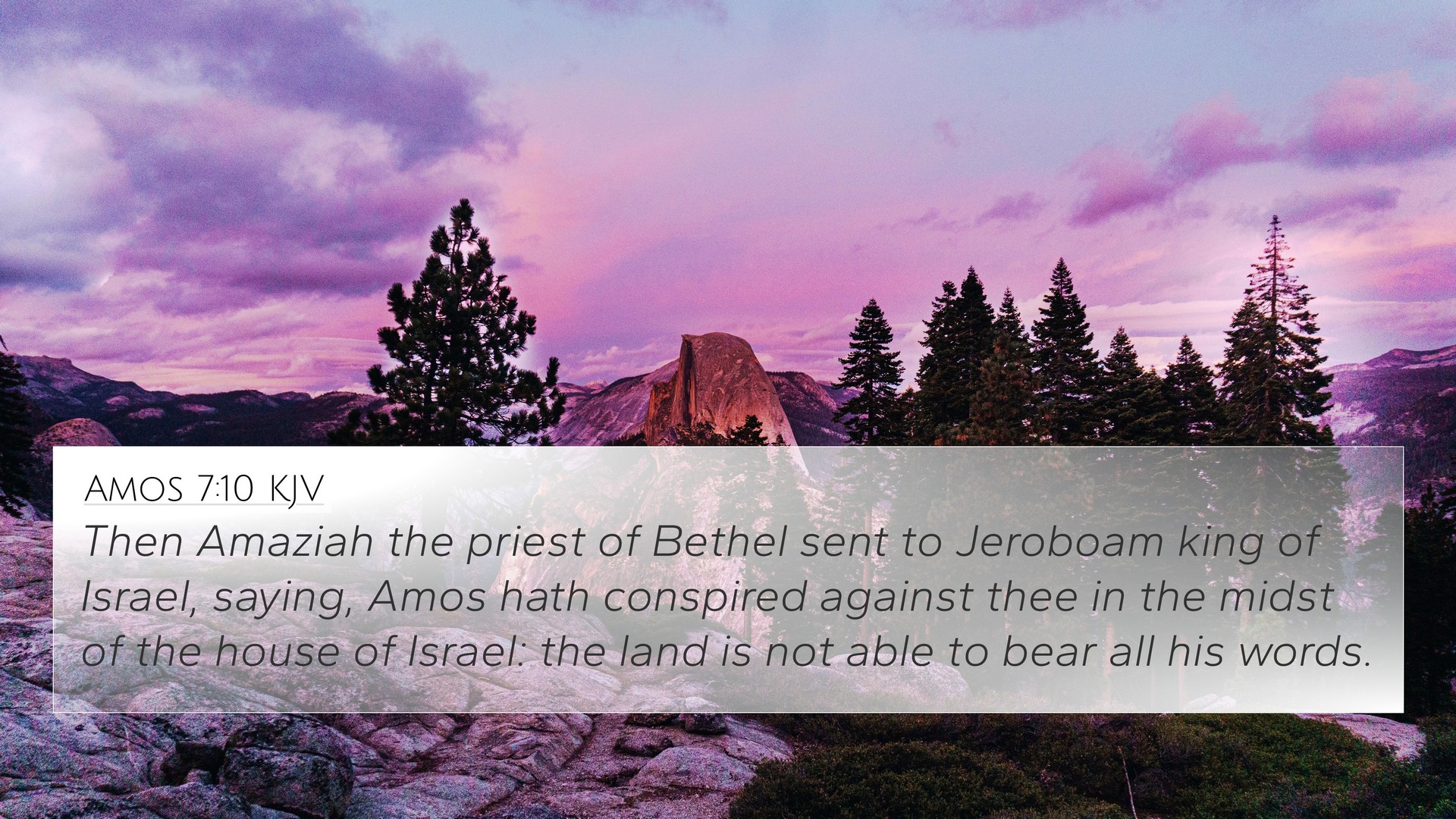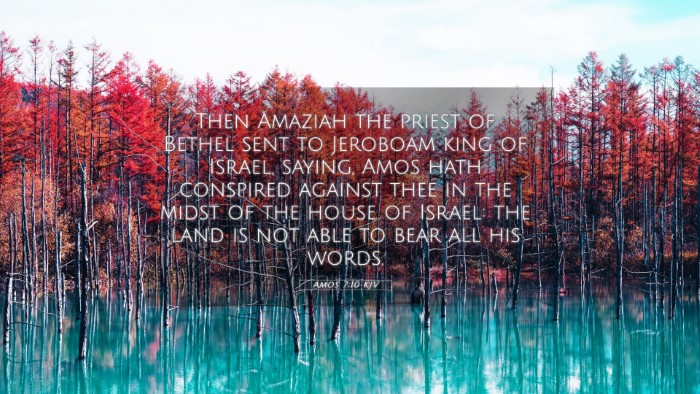Old Testament
Genesis Exodus Leviticus Numbers Deuteronomy Joshua Judges Ruth 1 Samuel 2 Samuel 1 Kings 2 Kings 1 Chronicles 2 Chronicles Ezra Nehemiah Esther Job Psalms Proverbs Ecclesiastes Song of Solomon Isaiah Jeremiah Lamentations Ezekiel Daniel Hosea Joel Amos Obadiah Jonah Micah Nahum Habakkuk Zephaniah Haggai Zechariah MalachiAmos 7:10 Similar Verses
Amos 7:10 Cross References
Then Amaziah the priest of Bethel sent to Jeroboam king of Israel, saying, Amos hath conspired against thee in the midst of the house of Israel: the land is not able to bear all his words.
Uncover the Rich Themes and Topics of This Bible Verse
Listed below are the Bible themes associated with Amos 7:10. We invite you to explore each theme to gain deeper insights into the Scriptures.
Amos 7:10 Cross Reference Verses
This section features a detailed cross-reference designed to enrich your understanding of the Scriptures. Below, you will find carefully selected verses that echo the themes and teachings related to Amos 7:10 KJV. Click on any image to explore detailed analyses of related Bible verses and uncover deeper theological insights.

Jeremiah 38:4 (KJV) »
Therefore the princes said unto the king, We beseech thee, let this man be put to death: for thus he weakeneth the hands of the men of war that remain in this city, and the hands of all the people, in speaking such words unto them: for this man seeketh not the welfare of this people, but the hurt.
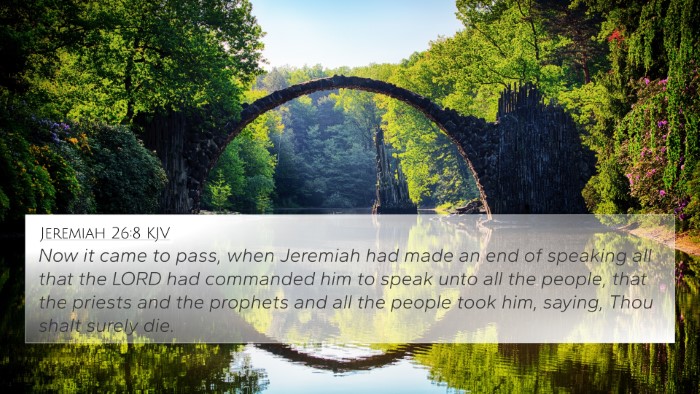
Jeremiah 26:8 (KJV) »
Now it came to pass, when Jeremiah had made an end of speaking all that the LORD had commanded him to speak unto all the people, that the priests and the prophets and all the people took him, saying, Thou shalt surely die.
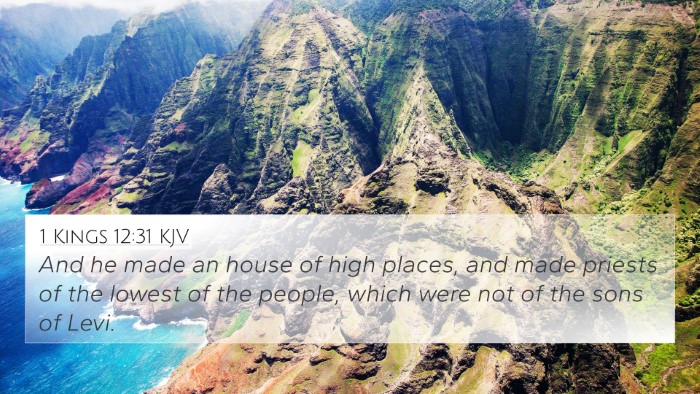
1 Kings 12:31 (KJV) »
And he made an house of high places, and made priests of the lowest of the people, which were not of the sons of Levi.
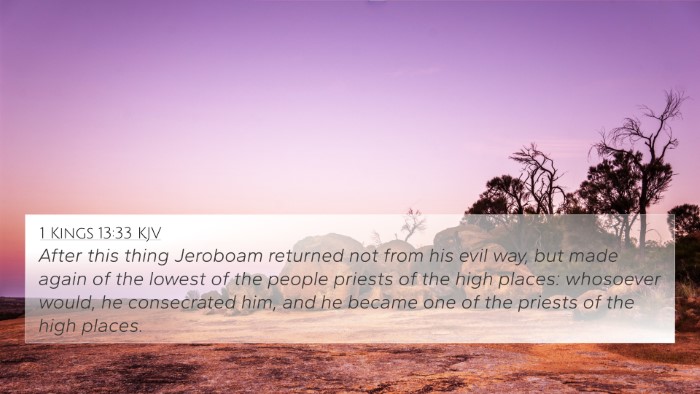
1 Kings 13:33 (KJV) »
After this thing Jeroboam returned not from his evil way, but made again of the lowest of the people priests of the high places: whosoever would, he consecrated him, and he became one of the priests of the high places.
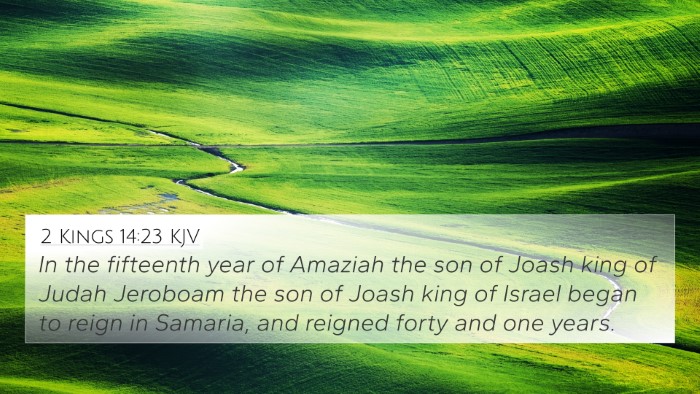
2 Kings 14:23 (KJV) »
In the fifteenth year of Amaziah the son of Joash king of Judah Jeroboam the son of Joash king of Israel began to reign in Samaria, and reigned forty and one years.
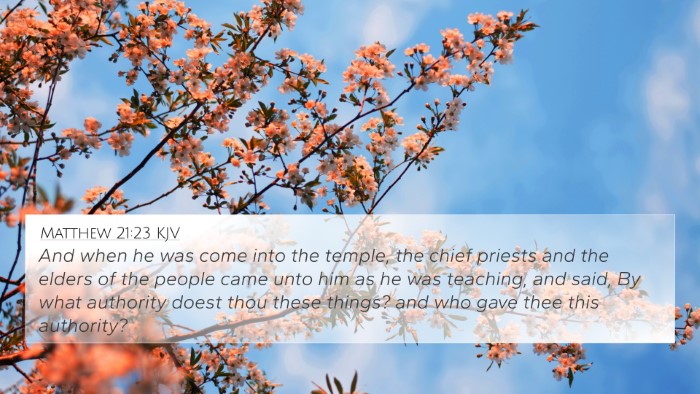
Matthew 21:23 (KJV) »
And when he was come into the temple, the chief priests and the elders of the people came unto him as he was teaching, and said, By what authority doest thou these things? and who gave thee this authority?
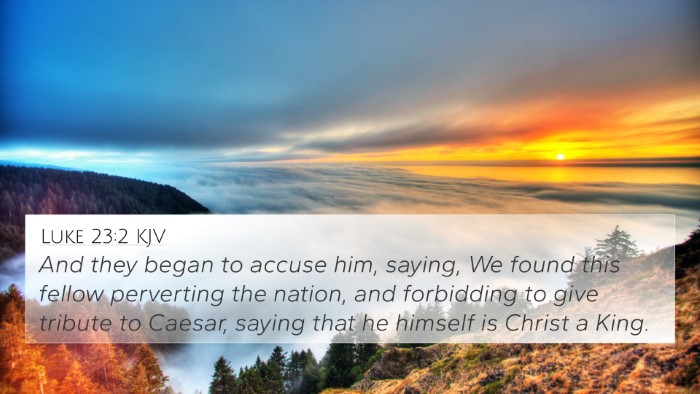
Luke 23:2 (KJV) »
And they began to accuse him, saying, We found this fellow perverting the nation, and forbidding to give tribute to Caesar, saying that he himself is Christ a King.
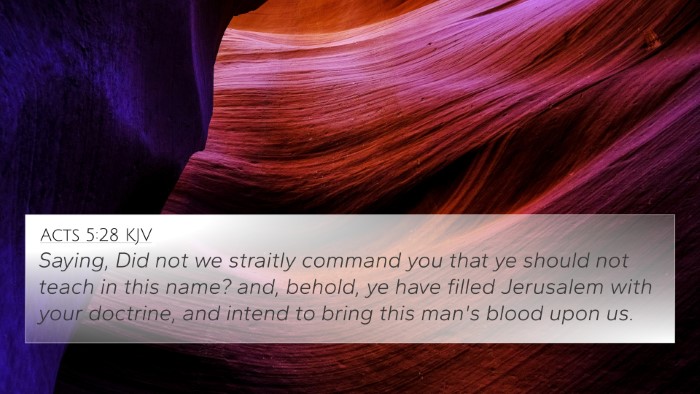
Acts 5:28 (KJV) »
Saying, Did not we straitly command you that ye should not teach in this name? and, behold, ye have filled Jerusalem with your doctrine, and intend to bring this man's blood upon us.
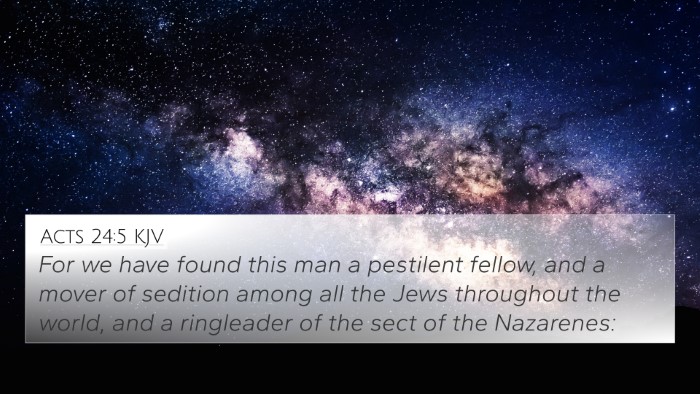
Acts 24:5 (KJV) »
For we have found this man a pestilent fellow, and a mover of sedition among all the Jews throughout the world, and a ringleader of the sect of the Nazarenes:
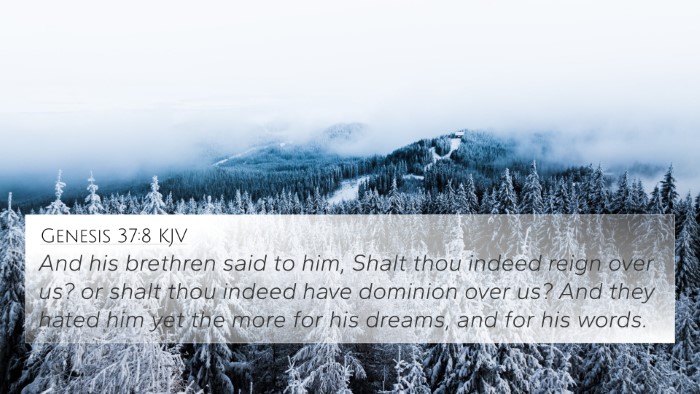
Genesis 37:8 (KJV) »
And his brethren said to him, Shalt thou indeed reign over us? or shalt thou indeed have dominion over us? And they hated him yet the more for his dreams, and for his words.
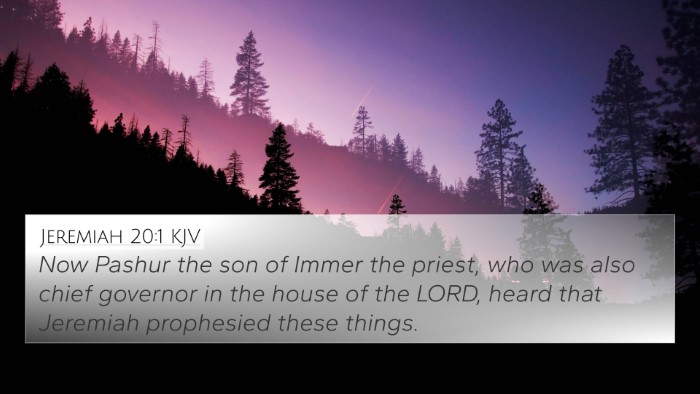
Jeremiah 20:1 (KJV) »
Now Pashur the son of Immer the priest, who was also chief governor in the house of the LORD, heard that Jeremiah prophesied these things.
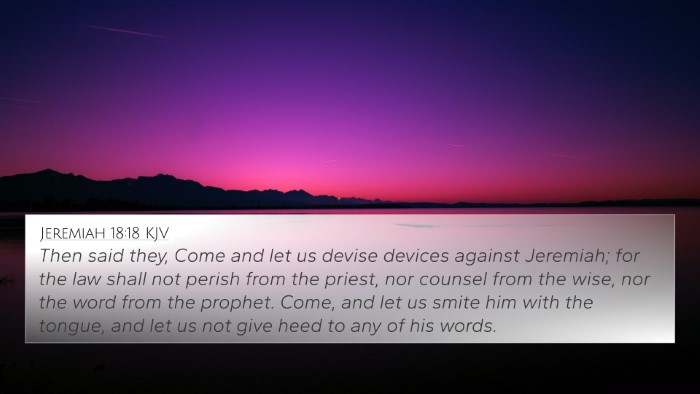
Jeremiah 18:18 (KJV) »
Then said they, Come and let us devise devices against Jeremiah; for the law shall not perish from the priest, nor counsel from the wise, nor the word from the prophet. Come, and let us smite him with the tongue, and let us not give heed to any of his words.
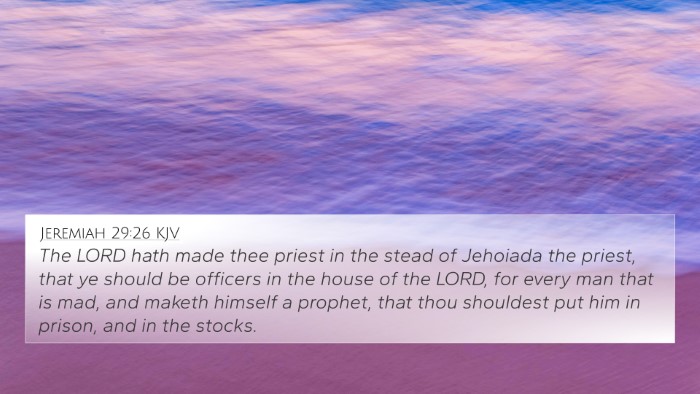
Jeremiah 29:26 (KJV) »
The LORD hath made thee priest in the stead of Jehoiada the priest, that ye should be officers in the house of the LORD, for every man that is mad, and maketh himself a prophet, that thou shouldest put him in prison, and in the stocks.
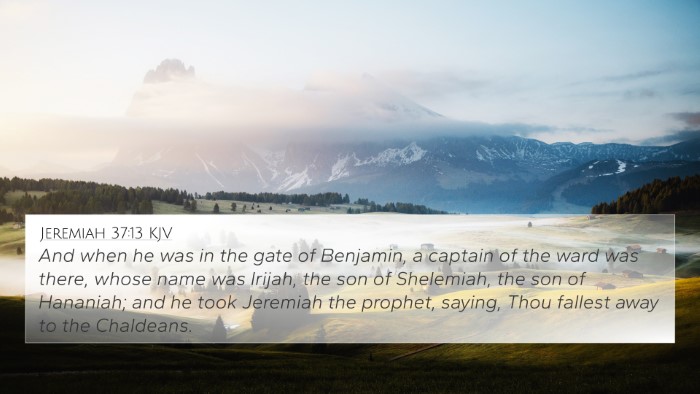
Jeremiah 37:13 (KJV) »
And when he was in the gate of Benjamin, a captain of the ward was there, whose name was Irijah, the son of Shelemiah, the son of Hananiah; and he took Jeremiah the prophet, saying, Thou fallest away to the Chaldeans.

2 Chronicles 13:8 (KJV) »
And now ye think to withstand the kingdom of the LORD in the hand of the sons of David; and ye be a great multitude, and there are with your golden calves, which Jeroboam made you for gods.
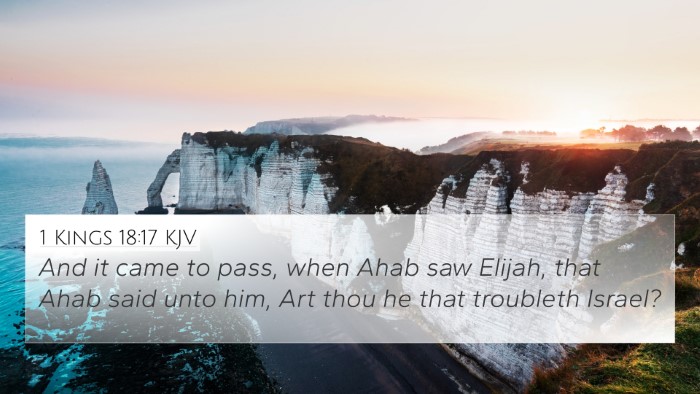
1 Kings 18:17 (KJV) »
And it came to pass, when Ahab saw Elijah, that Ahab said unto him, Art thou he that troubleth Israel?
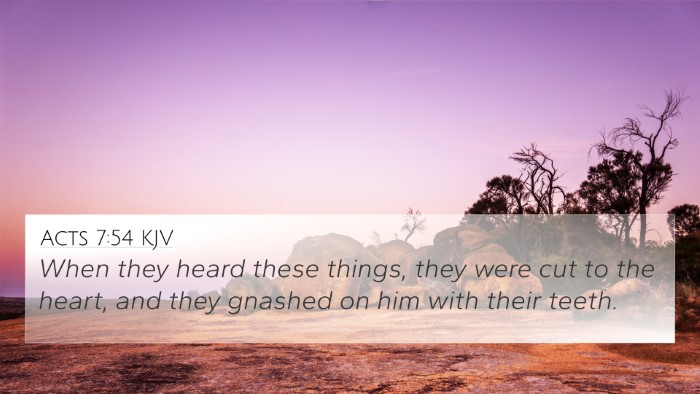
Acts 7:54 (KJV) »
When they heard these things, they were cut to the heart, and they gnashed on him with their teeth.
Amos 7:10 Verse Analysis and Similar Verses
Understanding Amos 7:10
Amos 7:10 states: "Then Amaziah the priest of Bethel sent to Jeroboam king of Israel, saying, Amos hath conspired against thee in the midst of the house of Israel: the land is not able to bear all his words."
Context and Overview
This verse occurs in a critical moment in the book of Amos, where the prophet speaks against the injustices and corrupt practices of Israel. The mention of Amaziah, a priest of Bethel, indicates a significant tension between prophetic judgment and established religious authority.
Insights from Public Domain Commentaries
- Matthew Henry: He emphasizes the role of Amos as a true prophet standing against the falsehoods propagated by priests like Amaziah. Henry notes that the message of Amos threatened the status quo, prompting Amaziah to accuse him of conspiracy.
- Albert Barnes: Barnes explains that Amos was seen as a disruptive figure by political and religious leaders, viewing his calls for repentance as a direct challenge to their power and corruption. This reflects a common theme in the life of prophets throughout the Bible, who often faced persecution for their messages.
- Adam Clarke: Clarke provides an interpretation highlighting the irony of Amaziah's position. While claiming to serve God, he opposes God's messenger, showcasing the conflict between true spiritual authority and institutional religion.
Theological Implications
The reaction of Amaziah demonstrates the often-hostile environment that true prophets of God face. Their messages, which call for righteousness and justice, frequently contradict the complacency and corruption found in religious institutions. This results in a necessary, albeit painful, dialogue between prophetic voices and those in power.
Cross-References
The following Bible verses can be cross-referenced with Amos 7:10 to better understand its context and implications:
- Jeremiah 1:19: "And they shall fight against thee; but they shall not prevail against thee; for I am with thee, saith the LORD, to deliver thee." - Reflecting the struggle prophets face.
- Ezekiel 2:6-7: "And thou, son of man, be not afraid of them, neither be afraid of their words..." - A reminder of the fearlessness required of God’s messengers.
- Micah 3:5: "Thus saith the LORD concerning the prophets that make my people err..." - Critiquing false prophets similar to Amaziah.
- 1 Kings 18:4: "For it was so, when Jezebel cut off the prophets of the LORD, that Obadiah took an hundred prophets..." - Showing the historical context of persecution against God's messengers.
- Luke 6:26: "Woe unto you, when all men shall speak well of you! for so did their fathers to the false prophets." - The dangers of popularity among the powerful.
- Matthew 5:11-12: "Blessed are ye, when men shall revile you, and persecute you..." - Encouragement for those facing opposition while following God's call.
- Acts 7:52: "Which of the prophets have not your fathers persecuted?" - Reflecting the continuity of prophetic persecution through history.
Connecting Themes
Amos 7:10 and its surrounding verses illustrate the theme of prophetic resistance, the call for social justice, and the conflict between divine messages and human power. Understanding this context aids in grasping the larger narrative of the Old Testament prophets, the challenges they faced, and their unwavering commitment to God’s truth.
Comparative Bible Verse Analysis
This verse serves as a platform for a comparative analysis between different prophetic texts:
- Obadiah: The consensus of prophetic critique against corrupt rulers parallels the accusations made by Amos.
- Isaiah 21:10: A warning about impending judgment, which resonates with the prophetic warnings issued by Amos.
- Hosea 4:6: "My people are destroyed for lack of knowledge..." - This connection highlights the importance of heeding divine warnings.
Conclusion
In summary, Amos 7:10 is more than a historical statement; it is a profound commentary on the struggle between divine truth and human authority. By cross-referencing with various biblical texts, we see a rich tapestry woven through scripture that addresses the timeless issues of injustice, prophetic integrity, and the challenges of standing firm in faith. Through diligent study and cross-referencing, believers can uncover deeper insights into God’s messages and their relevancy today.
